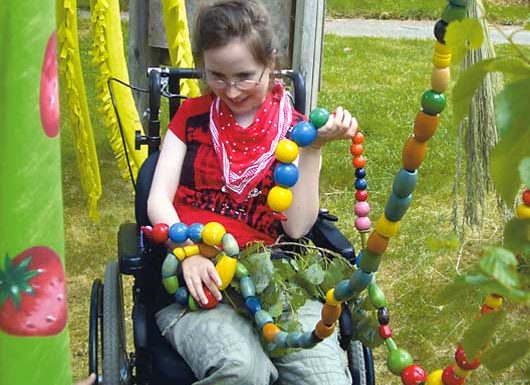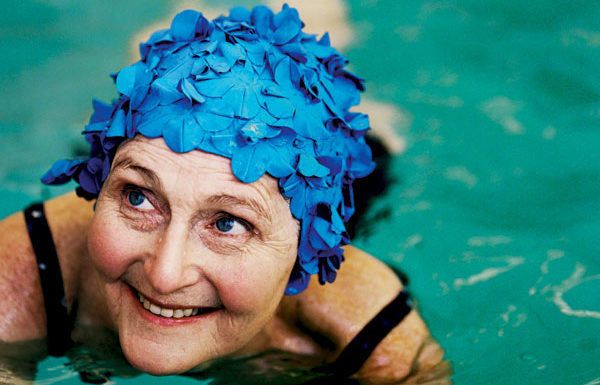It’s not your fault
Children with parents suffering from drug or alcohol addiction, or with mental health issues, are in danger of inheriting their parents’ problems. But preventive benefits are obtained from a sense of coping and a clear understanding that it is not their fault.
In order to learn more about how children can adjust to living with parents suffering from addiction and or mental health problems, SINTEF has been researching into how children experience their participation in the so-called ‘SMIL’ programme, which addresses how to boost coping efficacy in everyday life.
The SMIL program is a group-based service which most Norwegian health trusts offer to children and young people who are in danger of developing the same types of illnesses as their parents. The aim is to prevent this happening by encouraging a sense of coping among the children and by providing information about addiction and mental health issues. A critical factor is that many of the children believe that they are the cause of the problems. For this reason it is an important aim of the service to explain to the children that this isn’t the case.
“Children taking part in the SMIL program attend a series of eleven weekly two and a half hour sessions”, says Eli Valås, who is Project Manager for the program in Trondheim. “We have a maximum of eight children in each group, and they follow a fixed structure”, she says. “The sessions include topics varying from explaining the ideas of ‘adult responsibility’ and ‘child responsibility’, to learning more about their own feelings, their parents’ illnesses, and how they as children can learn to cope as best as they can with their life situations. Within the group, the children get the opportunity to share their experiences with others in a similar situation to their own”, explains Valås.
An important aim of the program is to make the children aware that they too can cope with and enjoy a good life which is as normal as possible even though their parents are struggling. The SMIL program is intended to provide children with a ‘tool box’ of possibilities they can use as they learn to cope with the challenges they face in their everyday lives. Parents are invited to separate meetings where they can get help in tackling their role as parents and in seeing things from their children’s point of view.
Addiction and mental health problems generate conflict
In order to assess the possible impact of the SMIL program, SINTEF researchers have interviewed children and young people who have attended sessions at two different locations in Norway. Some parents and group leaders were also interviewed.
“Conducting these interviews was a very moving experience”, says SINTEF researcher Marian Ådnanes.
“The children, who ranged in age from ten to fifteen, all live in situations which at times are very stressful”, she says. “Both because they have to live with their parents’ mental health, and in some cases addiction, problems, and also because most of them are constantly moving between two homes and parents in conflict with each other. This doubles the stress on these children”, says Ådnanes.
Difficult family situations
All the children taking part in the survey were in situations where their parents lived apart. Some of the children interviewed said they dreaded being with the parent who was suffering from addiction or mental health problems. Living with that parent was stressful, not least because of previous negative experiences. However, because of their sense of loyalty, it was difficult for the children to recognise that they didn’t want to be with that parent.
Ådnanes emphasises that it appears to have been easier to achieve an optimal impact from the SMIL program in cases where both parents agreed that it was good for the child to attend. Explaining the content and aims of the service to the parents in advance is a key success criterion. However, it is naturally enough often difficult to persuade both parents to attend. “This is probably the issue around the SMIL program with the greatest potential for improvement”, adds Ole Magnus Theisen, who headed the assessment process.
Not alone
The children who were interviewed also said that they had believed for some time that their life situation was unique. Meeting other children with experiences similar to theirs allowed them to feel that their own lives were more normal. All of them said that they thought it was good to be able to share their experiences with children of the same age who understood their feelings.
“We also saw that this contributed towards increasing the children’s understanding that their parents’ problems were not their fault”, says Theisen. “We also got clear feedback that many of the children thought it was easier to talk about their issues in the SMIL group”, he says.
Another important aspect of the SMIL program is that the children also have an opportunity to meet an adult who had grown up with parents suffering from the same problems.
“According to the researchers, this worked very well. The young people who were interviewed, in particular, noted that in spite of a difficult childhood, these adults showed that it was possible for things to turn out well in the end”, says Theisen.
Knowledge provides security
Most of those who took part in the SMIL program said that the knowledge they received about addiction and mental health issues was useful to them. However, here the researchers came upon a difference between the oldest and the youngest children. While the eldest were positive towards learning about their parents’ problems, the younger ones said that this was emotionally difficult for them.
The parents who were interviewed were unanimous in expressing their positive experiences from the program. According to the researchers, this may be due to the fact that only parents without problems were interviewed. Those who were ill participated to a much lesser extent.
The survey was carried out on commission from Oslo University Hospital.





